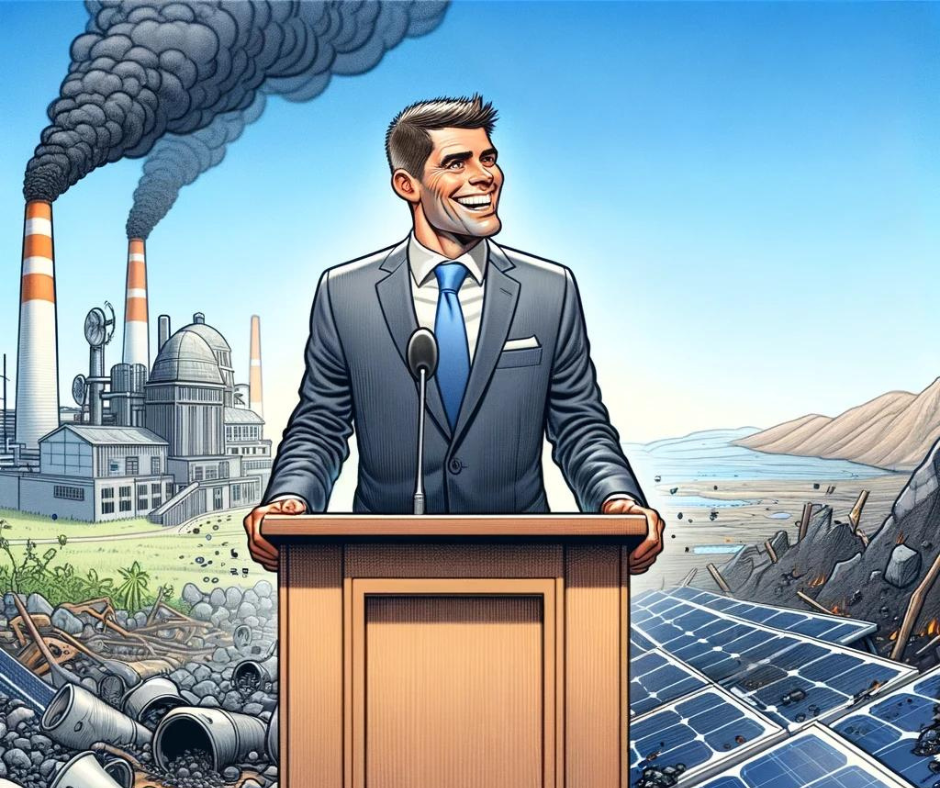This Earth Day, I am reminded of the words of a judge’s decision regarding Seattle City Light’s claim that it is the “nation’s greenest utility.” After finding the utility wasn’t living up to its environmental promises, the judge admitted the claim was “mere puffery.”
It could be said about so much of today’s environmental rhetoric.
Washington’s governor Jay Inslee claims the state is a leader in cutting CO2 emissions. In fact, CO2 emissions have increased every year he has been in office. At least though 2019, since the state hasn’t released data for the last four years.
Supporters of Portland’s Clean Energy Fund claimed it would reduce the city’s CO2 emissions. When it turned out the program didn’t build clean energy, the supporters claimed it was never intended to. Instead, the goal was to fight “structural racism.”
The Biden Administration promised to spend $7.5 billion to build 500,000 new charging stations for electric vehicles. Two years later, they’ve built only seven.
Each Earth Day we hear more promises even as the previous promises are routinely broken.
To understand this pattern of failure, we need to look at the key reasons that so many government-run environmental programs fail.
When developing government programs, politicians are incentivized to reward political allies and structure efforts that are politically popular. Making political attention the governing factor in environmental actions doesn’t merely promote policies that are ineffective – like the Portland Clean Energy Fund – it encourages extremism as activists search for ever more attention-grabbing ways to promote their cause.
Environmentalism becomes focused on politics and righteousness rather than on results. Blocking roads or destroying art with soup is not intended to help the planet but to put pressure on politicians.
Even in those cases where such pressure is successful, the policies inspired by activists gluing themselves to a road are unlikely to be well thought out. The chance of translating a rhythmic chant or simplistic slogan into effective policy is very low.
A profile of one environmental activist noted that although “He hasn’t spent years researching climate change impacts or environmental protection policies,” he has already “gained momentum for seeking solutions to some of the most pressing environmental problems.” Action, not thought, is the key.
To be sure, policymaking is a process of acting and then learning from mistakes. However, the feedback loop that creates information and accountability has been undermined by identity politics.
Policies are judged not by results, but by the signals they send about which team people are on. Activists praise politicians even as they repeatedly miss environmental targets because they are on their “side.” Media coverage of environmental issues becomes a battle of quotes typically between environmental groups and advocates for economic growth. What you believe is based on who you trust rather than an assessment of the data.
If environmental policy is just another expression of identity, actual environmental benefit is far less important than the signal policy choices send.
This is one reason that, despite a consistent pattern of such failures, the assumption made by politicians, activists, and many in the media is still that the only way to address environmental problems is to fund a government bureaucracy.
Years later, when the program should actually be judged for the outcomes, the same reporters and activists who were so excited are suddenly uninterested in whether the project they previously claimed was so critical is actually delivering environmental benefits.
The outcome of these political and identity incentives is that much of our environmental policy today simply doesn’t work. But nobody can admit failure because it is more than just the environment at stake – it is politicians’ image and activists’ sense of who they are as a person.
The only way to break out of this trap is to connect people directly to the results of their actions. Local efforts, with technology as a force multiplier, are not only more likely to be judged on results, but they also contribute to incremental progress that is the best way to act as a good steward of the natural world.
Until then, much of what we hear on Earth Day and throughout the year regarding the environment will continue to be mere puffery.




